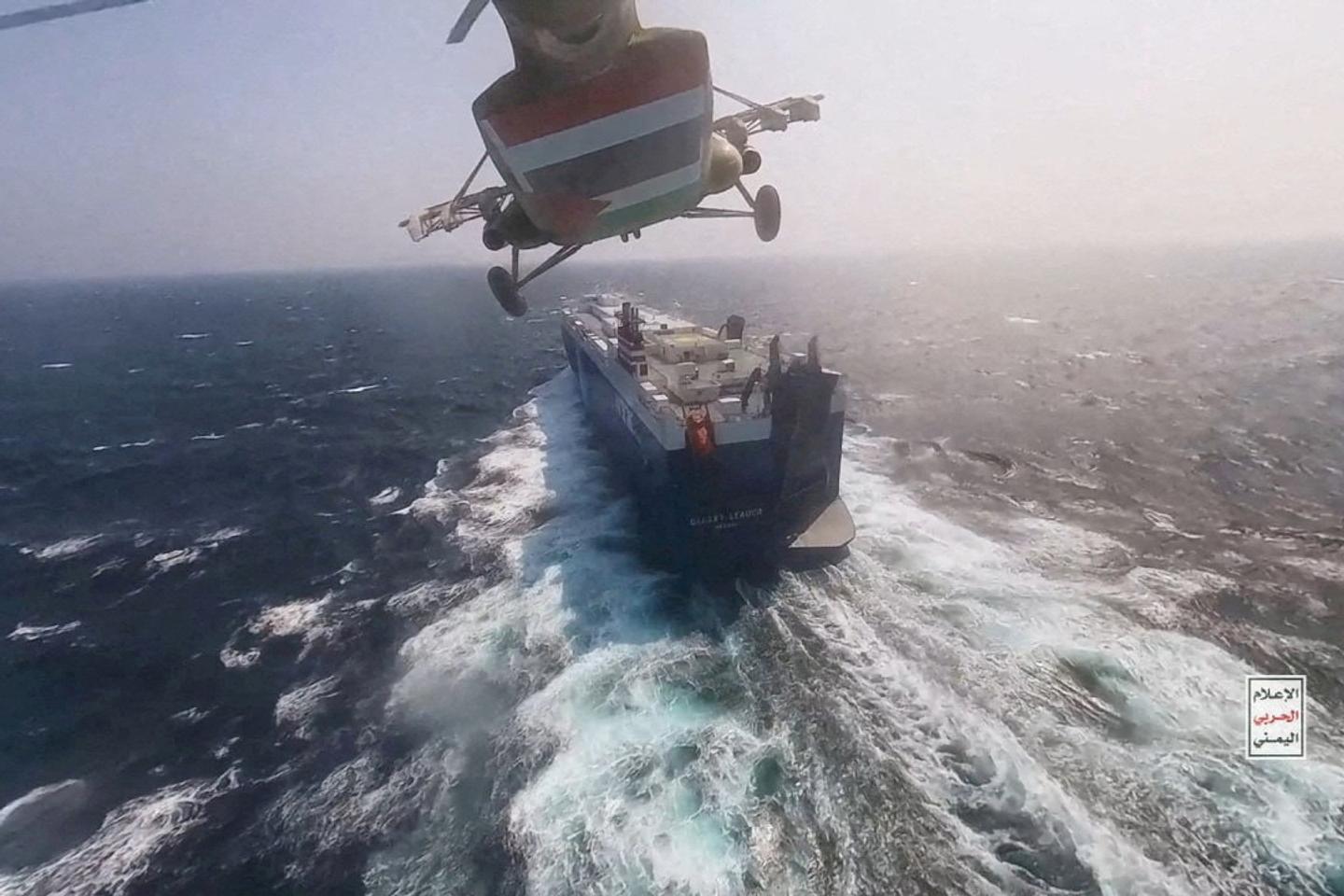


After several weeks of negotiations, the United States finally announced the creation of a new naval coalition in the Red Sea on Monday, December 18. Its purpose is to combat attacks by the Houthis, the Iranian-backed Yemeni rebels hostile to Israel. The decision comes at a time when the threat of paralysis to world trade has been particularly acute, following the suspension by all international shipowners of their upbound trade through the Suez Canal.
The Pentagon announced on Monday evening that 10 countries will be part of this coalition: the United Kingdom, Bahrain, Canada, Italy, the Netherlands, Norway, Spain and the Seychelles, as well as France and, of course, the United States. "The recent escalation in reckless Houthi attacks originating from Yemen threatens the free flow of commerce, endangers innocent mariners, and violates international law," said US Defense Secretary Lloyd Austin in Israel, where he was visiting before heading to Bahrain and Qatar. The operation to be carried out by this coalition has been dubbed "Operation Prosperity Guardian."
The contours of this new naval alliance remain unclear. At this stage, the coalition is simply an extension of one of the five combined task forces (CTFs) that the US has been commanding between the Red Sea and the Persian Gulf for some 20 years, from a base in Bahrain, and of which the navies from 39 countries are members. In practice, all the countries announced by the Pentagon are already associated with one or other of these CTFs, and some, like France and Spain, already have vessels in the area. Operation Prosperity Guardian will be under the aegis of CTF 153.
Compromising peace
In a region of divergent interests, several countries are conspicuous by their absence from this coalition. Egypt, for example, is normally a member of CTF 153 and even took command for the first time at the end of 2022, for a six-month period. While Cairo derives a large part of its revenue from Suez Canal passage rights (more than €8.5 billion in 2022) and is one of the two biggest recipients – along with Israel – of American military support every year, Egypt has refrained from any condemnation of the Houthi attacks until now.
The same goes for Saudi Arabia, one of the major powers in the Red Sea. At a time when the conflict between Israel and Hamas is hardening divisions, the Saudis know that an overly overt display in favor of the United States could compromise the peace they have been laboriously negotiating for many months with the Houthis to emerge from 10 years of war in Yemen.
You have 60% of this article left to read. The rest is for subscribers only.
